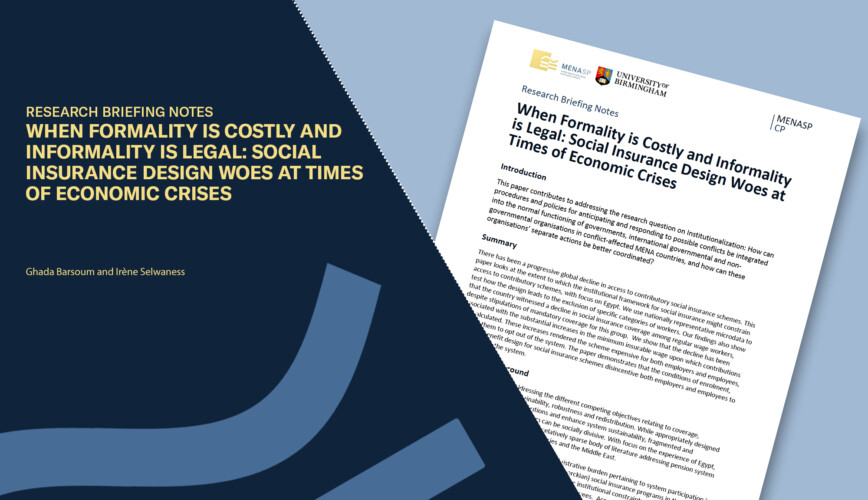This paper contributes to addressing the research question on Institutionalization: How can procedures and policies for anticipating and responding to possible conflicts be integrated into the normal functioning of governments, international governmental and non-governmental organisations in conflict-affected MENA countries, and how can these organisations’ separate actions be better coordinated?
There has been a progressive global decline in access to contributory social insurance schemes. This paper looks at the extent to which the institutional framework for social insurance might constrain access to contributory schemes, with focus on Egypt. We use nationally representative microdata to test how the design leads to the exclusion of specific categories of workers. Our findings also show that the country witnessed a decline in social insurance coverage among regular wage workers, despite stipulations of mandatory coverage for this group. We show that the decline has been associated with the substantial increases in the minimum insurable wage upon which contributions are calculated. These increases rendered the scheme expensive for both employers and employees, forcing them to opt out of the system. The paper demonstrates that the conditions of enrolment, cost and benefit design for social insurance schemes disincentive both employers and employees to contribute to the system.
DOI: 10.48352/uobxmenasp.0007
Authors: Ghada Barsoum, Professor and Director of Master of Public Policy (American University in Cairo) and Irène Selwaness, Associate Professor (Cairo University)
This project is supported by the Middle East and North Africa Social Policy Network (MENASP) at the University of Birmingham, in the framework of its ‘strengthening social welfare and security in the MENA region’ research programme, funded by the UK Arts and Humanities Research Council’s Global Challenges Research Fund.
Disclaimer: The opinions expressed in this publication are those of the authors. They do not purport to reflect the opinions or views of the Middle East and North Africa Social Policy (MENASP) Network or the University of Birmingham.
